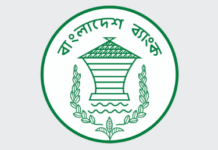They also call for steps to stop its smuggling

Citizens here on Wednesday voiced concern over the government move to lift the ban on hilsa export, claiming it will shoot up the price in the local market.
Addressing a human chain in front of the Jatiya Press Club, they observed that the export of the most coveted fish of the country will lead to a shorter supply in the domestic market, and will knock up the price which the lower and the middle income sections of society will not able to afford.
The human chain was organised by National Awami Party (NAP-Bhasani).
Speaking on the occasion, NAP-Bhasani president Moktab Ahmed Bhasani said, “We are expressing our concerns to the Commerce Minister that the export of hilsa will again increase its price in the local market like before the ban came to effect two years back.”
Moktab Ahmed also demanded government action to stop the huge smuggling of hilsa from Bangladesh.
Commerce Minister Tofail Ahmed on January 22 told reporters that formal export of hilsa will be better than the smuggling of the delicious fish.
Indian High Commissioner in Dhaka Pankaj Saran on the same day called on Fisheries and Livestock Minister Muhammed Sayedul Hoque and requested to lift the ban on hilsa export from Bangladesh.
The government on July 31, 2012 imposed the ban on hilsa export to keep its prices at an affordable level in the local market.
Moktab said, “The national income by exporting hilsa was only about Tk 300 crore, as it stood 3-4 years back, while the price we paid for it was that we could not afford to buy one hilsa even at Tk 500.”
The people of this soil have the right to have hilsa on their palates at a fair, affordable price, he said.
Meanwhile, Deshpremik Janogoner Mancha, a citizen’s platform, organised a press briefing at its office at Paribagh area to protest the government move to lift the ban on hilsa export.
Reading out a position paper, titled ‘No to Export of Hilsa to India’, Mancha chairman M Inamul Haque said the withdrawal of ban on hilsa export will provide more scope for the smuggling that has been rampant over the years.
According to Indian dailies, there was a demand of 50-70 tonnes hilsha per day in the markets of West Bengal, India, back in 2011, although the export quantity from Bangladesh at that time was near 3 tonnes per day, he said.
The huge gap between the official export figure and the demand in West Bengal markets indicates huge smuggling of hilsa from Bangladesh to India, he said.
Inamul said the export aligned with the smuggling of hilsa will eventually lead to excessive hilsa catch and provoke the fishermen to catch Jatka (hilsa fry) and mother fish, posing a threat to its reproduction.
“While it is the right of the people of the country to enjoy the national fish on their palates at a fair price, it’s also a responsibility of the government to ensure that the reproduction of the migratory fish species is protected. Both the interest of people and hilsa reproduction will be at stake with the lifting of the ban,” he observed.
According to the Department of Fisheries (DoF), the hilsa catch in the last fiscal stood about at 391 thousand tonnes.
Source: UNB Connect









